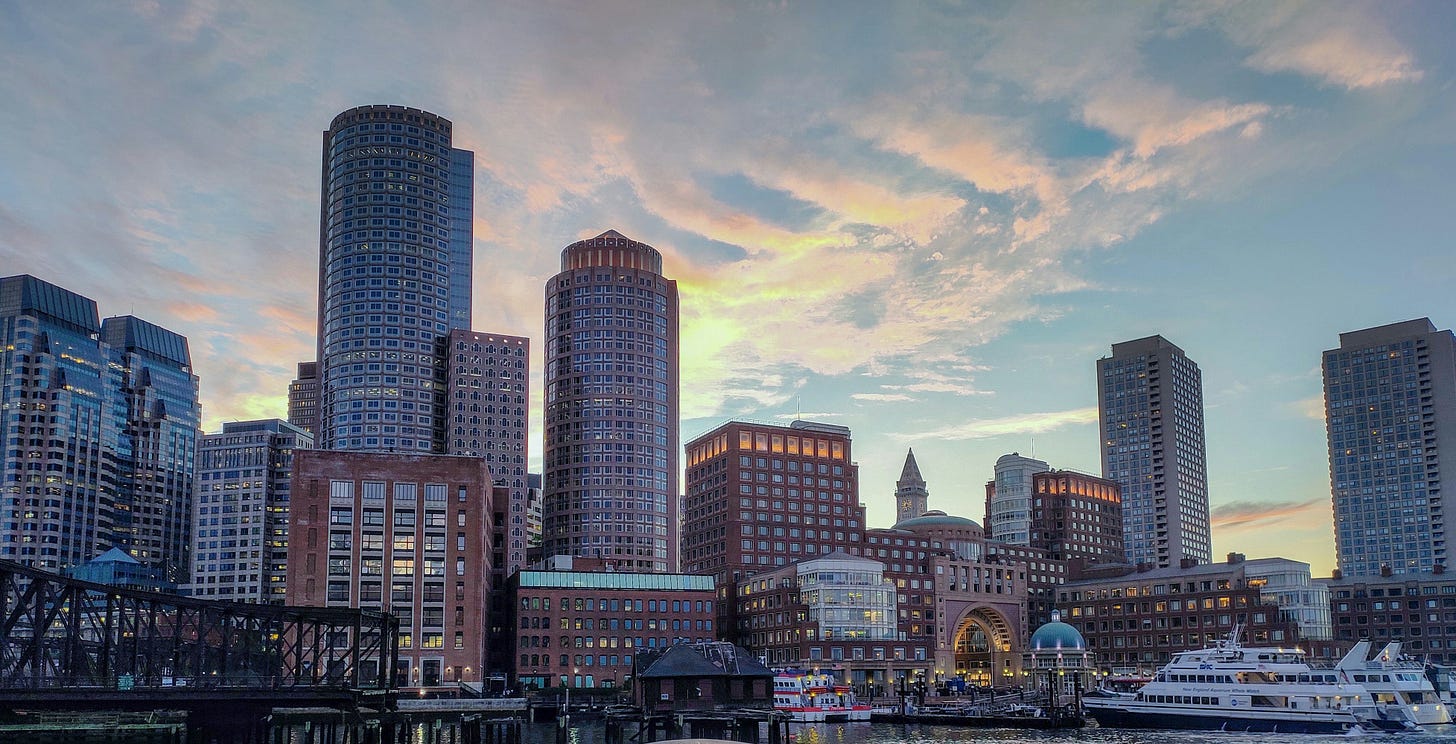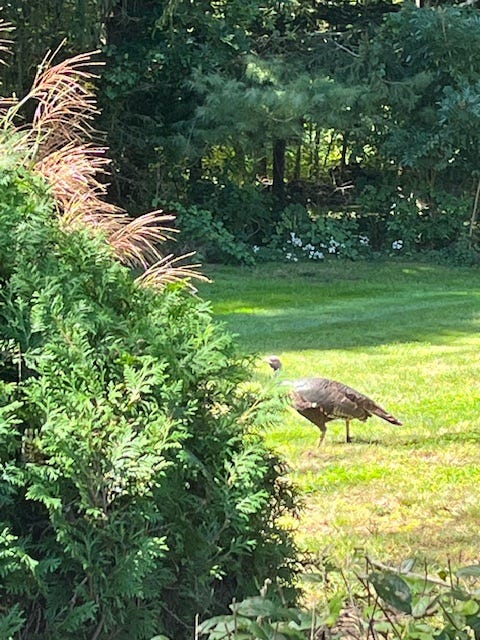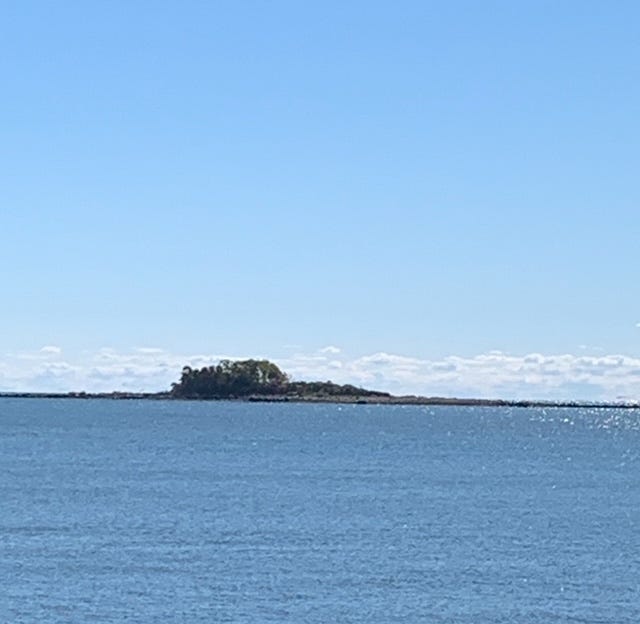Peace and Tranquility
When we're facing tough times, nothing beats going outside
I woke up last Friday ready to conquer a foe that has tormented me for several weeks: my ever-expanding to-do list.
With no calls on my schedule, I finally had time to knock out some of the tasks that had accumulated over the past month. There were bills to pay, jobs to apply to, future articles to scope out, a book to write.
After drinking my morning coffee and catching up on the day’s baseball news, I got down to work.
My motivation lasted all of thirty minutes.
It was way too nice out. From the sun illuminating the freshly cut grass in the backyard to the warm ocean breeze blowing softly through the side window, I never stood a chance.
The best part? There was zero humidity. (Which in New England, is a big deal.)
A previous version of me would have kept working, content to finish every last item on my to-do list. But this verison of me — wiser, with my priorities clarified — knew I needed to go outside ASAP.
Friday was what our local meteorologist likes to call a “Top 10 weather day”, the type of day where, if you are within five miles of the shoreline, you are obligated by law to drop everything and head to the nearest beach.
I paid one final bill and closed my laptop. Thirty minutes later, my dad and I parked at the local town beach, taking in the gentle rhythms of ocean life. (I’m sure the salty sea air smelled great, but unfortunately, I have no sense of smell.)
The beach was deserted, except for a few locals chowing down at the barbecue shack next door and a rogue seagull sauntering on the boardwalk. In a few weeks, the beach will be packed with inlanders escaping the summer heat, but on this day, the only sound was the soft ripple of the waves at low tide.
I took a deep breath. I was at peace, the kind that only comes from time spent outside taking advantage of nature’s beauty.
This was way better than my to-do list.
A sounding board, a loyal companion
The outdoors has always been a refuge, a place to escape from — and better understand — the unique challenges I face.
When my muscle disease symptoms manifested after college, my life was thrown into flux. So much was changing, so quickly. I was losing abilities every month, which was both stressful and terrifying.
It was tempting to stay home and not leave my room, but I forced myself to go outside as much as possible. I was still living in Boston at the time, a place I loved, and rather than turn into a hermit, I was determined to let the city be my sounding board as I made sense of what was happening inside my body.
Several times a week, instead of riding the subway, I would walk two miles to the waterfront to watch the sunset over Boston Harbor. Or, if I was feeling ambitious, I would stroll the length of Newbury Street, past the brownstones and boutiques and cozy restaurants, until I reached Kenmore Square to pick up the bus home.

Being outside served a dual benefit.
First, it gave me a welcome distraction from the worries and obsessions of life with a neuromuscular disease. Instead of dwelling on lost abilities, future medical tests, or what life would be like in five years, I could focus on the sights and sounds of the city.
Second, by clearing my conscious mind, I could ruminate on my problems on a subconscious level. It was on one of these long walks home that it popped into my head out of nowhere that I should write about my story. I’d say that decision worked out.
Eventually, my disease caught up with me and long walks became impossible. But I still wanted to be outside. After work, if I had the energy, I took taxi rides to my favorite outdoor spots, which included the Charles River Esplanade and the Boston Public Library courtyard. It was less exercise (and more expensive), but these trips were the highlight of my week, providing peace and tranquility I badly needed.
No matter how much my disease stressed me out, spending time outside gave me the space to process heavy emotions and think through how to respond to what came next.
Boston was a loyal companion during this pivotal time in my life. It will always hold a special place in my heart.
Relaxing in the sun
I moved back to Connecticut in 2016 after graduating from business school. I only intended to be here for a few months, but alas, it’s now been eight years.
In 2019, we built a deck on the side of our house with a ramp so I could enter and exit in my new power chair. But the real benefit of the deck was that I now had a secluded place to relax outside.
On the deck, I read my Kindle. I write in my notebook. I meditate. I pray. I observe. Instead of getting distracted by honking cars and people yelling, I bask in the serenity that only nature can provide.
I spend as much time on the deck as possible, as weather permits. Although I’m usually the only human outside, I’m rarely alone. There’s usually a steady stream of visitors from the animal kingdom, including squirrels, chipmunks, the neighbor’s cat, deer, geese, frogs that grunt like humans, and the occasional turkey. (Thankfully for me, the coyotes, bobcats, and hawks wait until I’m inside.)

The animals are never a distraction, except when squirrels jump on our neighbor’s patio table and hurl themselves at the bird feeder. (Successfully, I may add.)
All these years later, I still have intractable problems I need to think through. I never used to be a journaler, but now I’m constantly jotting down ideas in my notebook, ideas that only seem to surface once I’m on the deck.
There’s something special about nature. It slows our thoughts. It restores proportion to our lives. It reminds us that our worries and concerns, although important to us, are miniscule in the grand scheme of things.
Being outside is not just an escape from life; it is the essence of life.
Make the outdoors part of your daily routine
Being outdoors confers numerous health benefits. Not only can it improve your mental health, but it can also lower your blood pressure, reduce stress, improve your memory, and give you essential Vitamin D.
Here are three simple ways to incorporate the outdoors into your daily life:
Go outside when you have to do something you hate. We all have tasks we’d rather avoid, from Zoom calls with annoying coworkers to paying bills to haggling with the cable company. If we’re going to be miserable, we might as well be miserable in the fresh air.
Activate your senses. The outdoors is a great way to hone our observational skills. The more we can utilize our five senses, the more we can escape the chaos in our heads. Spend a few minutes identifying different sights, sounds, smells, tastes, and sensations around you. These observational skills are also useful for the 5-4-3-2-1 grounding technique which can help stave off panic attacks.
Get creative. For many reasons, there will be times when going outside isn’t possible. Although it’s not the same as the real thing, there are now thousands of YouTube videos with soothing nature sounds and visuals. (Thanks, AI.) If you like documentaries, there are several available on demand that can inspire awe and wonder for the natural world. Planet Earth is my favorite.
I want to hear from you! 🌲
What are your favorite outdoor spots? Let me know in the comments below!👇








I also love to spend as much time as possible on my deck. My other favorite spots are the beach 15 minutes from my house (also in New England!), the short but heavily wooded trails by my house, and the dock at a friend's lake house.
Thank you for this reminder of how important nature is and why it is not optional for humans. Your description of your deck creates such a vivid sense for me of how life affirming daily nature can be. We’ve recently added a couple cameras to our suburban yard, which has been an enticing way to enjoy nature, even if I’m unable to get outside. Creatively using technology, like you suggested, is better than not connecting with nature at all.